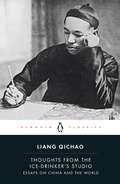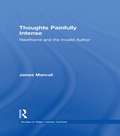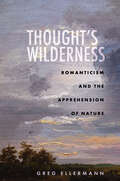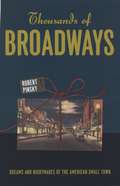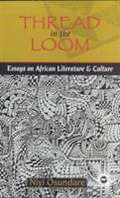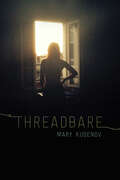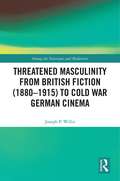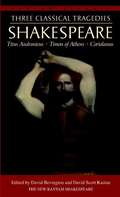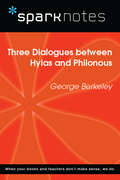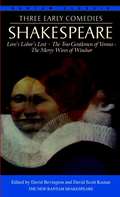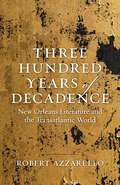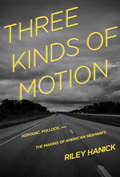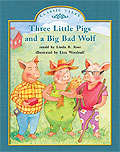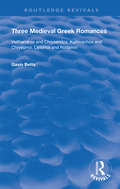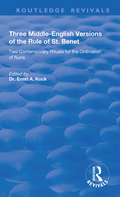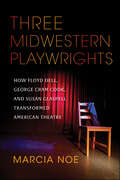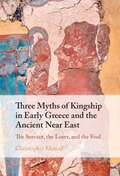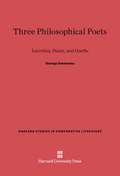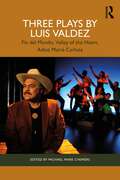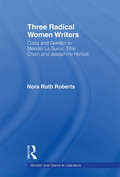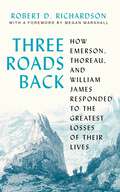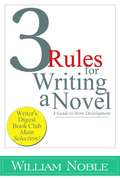- Table View
- List View
Thoughts From the Ice-Drinker's Studio: Essays on China and the World
by Liang Qichao'China's first iconic modern intellectual. His lucid and prolific writings, touching on all major concerns in his own time and anticipating many in the future, inspired several generations of thinkers' Pankaj Mishra'A country does not become corrupt and weak overnight. Rather, we are now reaping the evil harvest of what previous generations sowed.'The power, anger and fluency of Liang Qichao's writings make him one of the towering figures in modern Chinese literature. He saw his great, almost unmanageable task as an attempt to write China into the new era - to provide an ancient country, devastated by civil war and foreign predators, with the intellectual equipment to renew itself.Liang said that he wrote from an 'ice-drinker's studio', implying that underneath his dispassionate, disabused and rational tone lay an ardour and passion which only ice could cool. China could only recover through a clear-sighted, informed understanding of its enemies - and by engaging in a thorough-going self-critique. Liang did not propose aping the West but taking only what China needed to 'renew the people' and create 'new citizens'. Then China would be able to expel its invaders, reform its society and become a great power once more.This selection of pieces shows Liang's extraordinary range and the burning sense of mission which drove him on, attempting to galvanize and refresh an entire nation. Blending together Confucianism, Buddhism and the Western Enlightenment, Liang's ideas about nation, democracy, and morality had a profound impact on Chinese visions of the political order, though the China that eventually emerged from the further disasters of the 1930s and 1940s would be a very different one.
Thoughts Painfully Intense: Hawthorne and the Invalid Author (Studies in Major Literary Authors)
by James MancallFirst Published in 2002. Routledge is an imprint of Taylor & Francis, an informa company.
Thought’s Wilderness: Romanticism and the Apprehension of Nature
by Greg EllermannWhile much recent ecocriticism has questioned the value of nature as a concept, Thought's Wilderness insists that it is analytically and politically indispensable, and that romanticism shows us why. Without a concept of nature, Greg Ellermann argues, our thinking is limited to the world that capitalism has made. Defamiliarizing the tradition of romantic nature writing, Ellermann contends that the romantics tried to circumvent the domination of nature that is essential to modern capitalism. As he shows, poets and philosophers in the period such as Immanuel Kant, G. W. F. Hegel, Mary Wollstonecraft, William Wordsworth, and Percy Shelley were highly attuned to nature's ephemeral, ungraspable forms: clouds of vapor, a trace of ruin, deep silence, and the "world-surrounding ether." Further, he explains how nature's vanishing—its vulnerability and its flight from apprehension—became a philosophical and political problem. In response to a nascent industrial capitalism, romantic writers developed a poetics of wilderness—a poetics that is attentive to fleeting presence and that seeks to let things be. Trying to imagine what ultimately eludes capture, the romantics recognized the complicity between conceptual and economic domination, and they saw how thought itself could become a technology for control. This insight, Ellermann proposes, motivates romantic efforts to think past capitalist instrumentality and its devastation of the world. Ultimately, this new work undertakes a fundamental rethinking of the aesthetics and politics of nature.
Thousands of Broadways: Dreams and Nightmares of the American Small Town
by Robert PinskyBroadway, the main street that runs through Robert Pinsky's home town of Long Branch, New Jersey, was once like thousands of other main streets in small towns across the country. But for Pinsky, one of America's most admired poets and its former Poet Laureate, this Broadway is the point of departure for a lively journey through the small towns of the American imagination. The citizens of quintessential small towns know one another extensively and even intimately, but fail to recognize the geniuses and criminal minds in their midst. Bringing the works of such figures as Mark Twain, William Faulkner, Alfred Hitchcock, Thornton Wilder, Willa Cather, and Preston Sturges to bear on this paradox, as well as reflections on his own time growing up in a small town, Pinsky explores how such imperfect knowledge shields communities from the anonymity and alienation of modern life. Along the way, he also considers how small towns can be small-minded -- in some cases viciously judgmental and oppressively provincial. Ultimately, Pinsky examines the uneasy regard that creative talents like him often have toward the small towns that either nurtured or thwarted their artistic impulses.
Thread in the Loom: Essays on African Literature and Culture
by Niyi OsundareEven in this age of globalism, Africa still hangs precariously on the margins as a zone of abysmal silence and disarticulation. Ideas and prejudices travel with imperial ease and confidence in Africa while the 'canon war' makes it extremely difficult for African texts to make it to the readings lists of Western institutions. A grossly maladjusted economy, political instability, dictatorship and intolerance have affected the literary and cultural scene in near apocalyptic proportions. These essays address these issues from the perspective of an African writer and academic.
Threadbare: Class and Crime in Urban Alaska (The Alaska Literary Series)
by Mary KudenovAlaska’s perch at the geographic corner of civilization isn’t all wilderness and reality TV. There’s a darker side too. Above the 49th parallel some of the nation’s highest rates of alcoholism, suicide, and violent crime can be found. While it can easy to write off or even romanticize these statistics as the product of a lingering Wild West culture, talking with real Alaskans reveals a different story. Journalist Mary Kudenov set out to find the true stories behind this “end-of-the-road” culture. Through her essays, we meet Alaskans who live outside the common adventurer narrative: a recent graduate of a court-sponsored sobriety program, a long-timer in the Hiland Mountain Correctional Center for women, a slum-landlord’s emancipated teenage daughter, and even a post-rampage spree killer. Her subjects struggle with poverty and middle-class aspirations, education and minimum wage work, God and psychology. The result is a raw and startling collection of direct, ground-level reporting that will leave you deeply moved.
Threatened Masculinity from British Fiction to Cold War German Cinema (Among the Victorians and Modernists)
by Joseph P. WillisThe impact of the Cold War on German male identities can be seen in the nation’s cinematic search for a masculine paradigm that rejected the fate-centered value system of its National- Socialist past while also recognizing that German males once again had become victims of fate and fatalism, but now within the value system of the Soviet and American hegemonies that determined the fate of Cold War Germany and Central Europe. This monograph is the first to demonstrate that this Cold War cinematic search sought out a meaningful masculine paradigm through film adaptations of late-Victorian and Edwardian male writers who likewise sought a means of self-determination within a hegemonic structure that often left few opportunities for personal agency. In contrast to the scholarly practice of exploring categories of modern masculinity such as Victorian imperialist manliness or German Cold-War male identity as distinct from each other, this monograph offers an important, comparative corrective that brings forward an extremely influential century-long trajectory of threatened masculinity. For German Cold-War masculinity, lessons were to be learned from history—namely, from late-Victorian and Edwardian models of manliness. Cold War Germans, like the Victorians before them, had to confront the unknowns of a new world without fear or hesitation. In a Cold-War mentality where nuclear technology and geographic distance had trumped face-to-face confrontation between East and West, Cold-War German masculinity sought alternatives to the insanity of mutual nuclear destruction by choosing not just to confront threats, but to resolve threats directly through personal agency and self-determination.
Three Cartularies from Thirteenth Century Auxerre
by Constance BouchardThis edition presents the recently rediscovered episcopal cartulary of Auxerre, composed in the 1280s but assumed lost since the French Revolution. Along with confirmations by popes, quarrel settlements with counts, and agreements with the bishop's tenants, the cartulary contains documents that were previously unknown, notably several papal decisions. Auxerre was unusually well documented for the period 800-1200, but little information on the bishopric's history after 1200 has been available until now. The text contains a wealth of information about relationships between church leaders and other churches, between churches and secular leaders, and details on peasant rights and obligations.This edition also includes the short thirteenth-century cartularies of the nuns of St.-Julien and of the cathedral chapter, the latter existing only in fragmentary form. With full annotation of people and places and English-language summaries, these cartularies make a valuable contribution to our understanding of this significant episcopal centre's history.
Three Classical Tragedies: Titus Andronicus, Timon of Athens, Coriolanus
by William Shakespeare David Scott Kastan David M. BevingtonTitus Andronicus * Timon of Athens * Coriolanus. Each Edition Includes: Comprehensive explanatory notes placed on pages facing the text of the play, vivid introductions and the most up-to-date scholarship, and clear, modernized spelling and punctuation, enabling contemporary readers to understand the Elizabethan English. Completely updated, detailed bibliographies and performance histories. An interpretive essay on film adaptations of the play, along with an extensive filmography. Titus Andronicus, Shakespeare's earliest tragedy, is also his bloodiest and most horror-filled. A Roman general, to appease the spirit of his dead son, sacrifices the son of a captive Goth queen--and sets in motion a remorseless cycle of revenge and counterrevenge. The play's vivid spectacle of violence stuns audiences with rape, murder, mutilation, and unmitigated cruelty. Timon of Athens, a stark drama--in some ways Shakespeare's most bitter play--is a brilliant psychological portrait of a wealthy Athenian lord whose extraordinary trust and love for others turns to hate and spite when, bankrupted by his generosity, he is overwhelmed by the indifference and ingratitude of those he had thought friends. Coriolanus, the arrogance of a Roman military hero puts him in conflict with the people of Rome when the aristocrat is unwilling to compromise with the commoners he so despises. Compellingly relevant today, Shakespeare's last tragedy--from its opening scene of popular unrest to its chilling climax of betrayal and murder--takes an unwavering, ironic look at political extremism.
Three Dialogues between Hylas Philonous (SparkNotes Philosophy Guide)
by SparkNotesThree Dialogues between Hylas Philonous (SparkNotes Philosophy Guide) Making the reading experience fun! SparkNotes Philosophy Guides are one-stop guides to the great works of philosophy–masterpieces that stand at the foundations of Western thought. Inside each Philosophy Guide you&’ll find insightful overviews of great philosophical works of the Western world.
Three Early Comedies: Love's Labor's Lost, The Two Gentlemen of Verona, The Merry Wives of Windsor
by William Shakespeare David Bevington David Scott Kastan James Hammersmith Robert Kean Turner Joseph PappThree Early Comedies: Love's Labor's Lost Farce and fun follow when a young king and his three friends vow to give up women for a year--just as a pretty princess and her three ladies-in-waiting arrive--in a delightful play that ends with one of Shakespeare's loveliest songs. The Two Gentlemen of Verona: In this lyrical comedy, two friends are infatuated with the same woman, while a jilted girl disguised as a boy and a clownish servant with a raffish mutt set the scene for laughter and a timeless story of love. The Merry Wives of Windsor: Shakespeare's famous rogue, Falstaff, woos two married women with identical love letters--and becomes the focus of a hilarious comedy when the women conspire to teach him a lesson.
Three Great Ballplayers
by Greg RogersThe fun and excitement of English and Language Arts learning continues in Grade 2 of Reading Street. This comprehensive and dynamic curriculum for homeschooling is geared toward young children who have some foundational English and Language Arts knowledge and are ready to strengthen their skills. Comprised of engaging activities, challenging content and weekly quizzes, Reading Street: Grade 2 is the next step in your child's path toward becoming a lifelong learner and reader. As with all Reading Street products, the Grade 2 system is formatted to help students meet certain age-appropriate goals. After completing this English and Language Arts homeschool program, your child should be able to: Read and comprehend two-syllable words. Identify common prefixes (such as pre-, un-, or re-) and suffixes (such as -able, -ad and -er). Correct mistakes made when reading out loud. Read books with two or more chapters. Understand the structure of stores (i. e. beginning, middle and end). Start selecting reading materials based on his/her own interests. Identify the "who," "what," "when," "where," "why" and "how" of the text. While the goals of second Grade English and Language Arts are numerous, Reading Street will help you craft engrossing lessons. Your child will garner important English and Language Arts skills while completing a workbook, reading stories and poems, and taking assessments. Planning these lessons will be easier than ever, as all Reading Street systems are broken down into weekly Big Ideas. All the work your child does on a given week is formulated around that single concept for an organized and challenging curriculum. With six easy-to-follow units, Reading Street: Grade 2 is the perfect tool for homeschooling parents. Your child will enjoy the reading selections and activities, and you'll love to see your student growing into a knowledgeable individual. We're confident that this product is the right one for you. For more information on the specific materials found in Grade 2 of Reading Street, check out the Features and Benefits page.
Three Hundred Years of Decadence: New Orleans Literature and the Transatlantic World
by Robert AzzarelloNew Orleans’s reputation as a decadent city stems in part from its environmental precariousness, its Francophilia, its Afro-Caribbean connections, its Catholicism, and its litany of alleged “vices,” encompassing prostitution, miscegenation, homosexuality, and any number of the seven deadly sins. An evocative work of cultural criticism, Robert Azzarello’s Three Hundred Years of Decadence argues that decadence can convey a more nuanced meaning than simple decay or decline conceived in physical, social, or moral terms. Instead, within New Orleans literature, decadence possesses a complex, even paradoxical relationship with concepts like beauty and health, progress, and technological advance. Azzarello presents the concept of decadence, along with its perception and the uneasy social relations that result, as a suggestive avenue for decoding the long, shifting story of New Orleans and its position in the transatlantic world. By analyzing literary works that span from the late seventeenth century to contemporary speculations about the city’s future, Azzarello uncovers how decadence often names a transfiguration of values, in which ideas about supposed good and bad cannot maintain their stability and end up morphing into one another. These evolving representations of a decadent New Orleans, which Azzarello traces with attention to both details of local history and insights from critical theory, reveal the extent to which the city functions as a contact zone for peoples and cultures from Europe, Africa, and the Americas. Drawing on a deep and understudied archive of New Orleans literature, Azzarello considers texts from multiple genres (fiction, poetry, drama, song, and travel writing), including many written in languages other than English. His analysis includes such works of transcription and translation as George Washington Cable’s “Creole Slave Songs” and Mary Haas’s Tunica Texts, which he places in dialogue with canonical and recent works about the city, as well as with neglected texts like Ludwig von Reizenstein’s German-language serial The Mysteries of New Orleans and Charles Chesnutt’s novel Paul Marchand, F.M.C. With its careful analysis and focused scope, Three Hundred Years of Decadence uncovers the immense significance—historically, politically, and aesthetically—that literary imaginings of a decadent New Orleans hold for understanding the city’s position as a multicultural, transatlantic contact zone.
Three Kinds of Motion: Kerouac, Pollock, and the Making of American Highways
by Riley Hanick"Like a great conversationalist, Hanick paints a generous canvas, and I rode the length of this powerful book much like I first experienced the American interstate: songs on the stereo, windows down, and the bittersweet sense that youth is fleeting. Three Kinds of Motion holds open a wild and beautiful journey, not to be missed."--Thalia FieldIn 1943, Peggy Guggenheim commissioned a mural from Jackson Pollock to hang in the entryway of her Manhattan townhouse. It was the largest Pollock canvas she would ever own, and four years later she gave it to a small Midwestern institution with no place to put it. When the original scroll of On the Road goes on tour across the country, it lands at the same Iowa museum housing Peggy's Pollock, revitalizing Riley Hanick's adolescent fascination with the author. Alongside these two narrative threads, Hanick revisits Dwight D. Eisenhower's quest to build America's first interstate highway system. When catastrophic rains flood the Iowa highways with their famous allure and history of conquest, they also threaten the museum and its precious mural. In Three Kinds of Motion, his razor-sharp, funny, and intensely vulnerable book-length essay, Hanick moves deftly between his three subjects. He delivers a story with breathtaking ingenuity.Riley Hanick is an essayist, journalist, and translator. His work has received support from the Jentel and McKnight foundations and he has served as a writer-in-residence for the University of Iowa Museum of Art. He teaches at Murray State University.
Three Little Pigs and a Big Bad Wolf (Fountas & Pinnell LLI Green #Level E, Lesson 61)
by Linda RossFountas and Pinnell Leveled Literacy Intervention Green System -- 1st Grade
Three Medieval Greek Romances: Velthandros And Chrysandza, Kallimachos And Chrysorroi, Livistros And Rodamni (Routledge Revivals #Vol. 98b)
by Gavin BettsPublished in 1995: These three 14th century medieval Greek romances, which are presented here for the first time in English translation, form part of a curious and previously neglected corner of literature.
Three Middle-English Versions of the Rule of St. Benet: Two Contemporary Rituals for the Ordination of Nuns (Routledge Revivals)
by Ernst A. KockFirst published in 1902, this volume contains an extensive, technical scholarly introduction, followed by three Middle-English versions of the Rule of St. Benet along with the Northern Lansdowne Ritual on the reception of novices and the Vespasian Ritual of making a nun. As St Benet is the Medieval English version of St. Benedict, the original version of this text dates back to the 6th century.
Three Midwestern Playwrights: How Floyd Dell, George Cram Cook, and Susan Glaspell Transformed American Theatre
by Marcia NoeIn the early 1900s, three small-town midwestern playwrights helped shepherd American theatre into the modern era. Together, they created the renowned Provincetown Players collective, which not only launched many careers but also had the power to affect US social, cultural, and political beliefs.The philosophical and political orientations of Floyd Dell, George Cram Cook, and Susan Glaspell generated a theatre practice marked by experimentalism, collaboration, leftist cultural critique, rebellion, liberation, and community engagement. In Three Midwestern Playwrights, Marcia Noe situates the origin of the Provincetown aesthetic in Davenport, Iowa, a Mississippi River town. All three playwrights recognized that radical politics sometimes begat radical chic, and several of their plays satirize the faddish elements of the progressive political, social, and cultural movements they were active in.Three Midwestern Playwrights brings the players to life and deftly illustrates how Dell, Cook, and Glaspell joined early 20th-century midwestern radicalism with East Coast avant-garde drama, resulting in a fresh and energetic contribution to American theatre.
Three Myths of Kingship in Early Greece and the Ancient Near East: The Servant, the Lover, and the Fool
by Christopher MetcalfOn the basis of recently discovered sources and original research, this book identifies and analyses three story-patterns associated with human kingship in early Greek and ancient Near Eastern myth. The first of these, the 'Myth of the Servant', was used to explain how an individual of non-royal lineage rose to power from obscure origins. The second myth, on the 'Goddess and the Herdsman', made the fundamental claim that the ruler engaged in a sexual relationship with a powerful female deity. Third, although kings are often central to the ancient literary evidence, the texts themselves were usually authored by others, such as poets, priests, prophets or scholars; like kings, these characters similarly tended to base their authority on their ability to articulate and enact the divine will. The stage was thus set for narratives of conflict between kings and other intermediaries of the gods.
Three Philosophical Poets: Lucretius, Dante, and Goethe
by George SantayanaThis book provides an introduction to the three great philosophical poets whose works taken together possibly sum up all European philosophy.
Three Plays by Luis Valdez: Fin del Mundo, Valley of the Heart, Adíos Mamá Carlota
by Luis ValdezCollecting together Fin del Mundo, Valley of the Heart, and Adíos Mamá Carlota, this book compiles the latest plays of Luis Valdez and explores how they stand to be considered masterpieces by the man who brought the world Zoot Suit and La Bamba.Luis Valdez has been described as the “last of the great American playwrights,” referring to a Golden Age of U.S. playwriting that began with Eugene O’Neill and included Tennessee Williams, Arthur Miller, and August Wilson. Like these other playwrights, Valdez’s impact on theatre needs to be measured on a global scale. The plays are psychologically deep, with powerful political messages woven into sophisticated plots and minutely drawn characters, all done with the characteristic rasquachi theatricality that made Valdez a household name. Fin del Mundo follows the protagonist through a maze-like urban afterlife that is by turns hilarious and deeply moving. In Valley of the Heart we witness a fictionalization of the true history of the relationship of Chicanos to Japanese-Americans during the horrific internments of World War II. Finally, in Adíos Mamá Carlota, we share the final moments of the former Empress of Mexico, teetering on the edge of madness, as she relives her extraordinary life and faces crippling guilt over her actions. Together, these plays represent a crowning achievement in the storied life of Luis Valdez. In this collection, each play is preceded by an introductory chapter by Jorge A. Huerta with analysis of the play.This collection is a vital and indispensable text for practitioners and students, as well as scholars of contemporary theatre, American, and Chicano performance.
Three Radical Women Writers: Class and Gender in Meridel Le Sueur, Tillie Olsen, and Josephine Herbst (Gender and Genre in Literature #6)
by Nora Ruth RobertsCombining biography, history, and literary theory, this work looks at three of the most significant women writers to emerge from American radicalism of the 1930s. Le Sueur, Olsen, and Herbst were influenced by the Communist movement of the time, but each also forged an independent vision of feminist socialist literary milieu. Drawing on Marxist and post-Marxist theory, and addressing the challenge of such new feminist theorists as Jean Bethke Elshtain, Roberts takes a theoretical approach that encompasses the social vision and feminist practice of the writers and places them in their historical, cultural, and social contexts. The study covers their lives from the turn of the century to the 1970s, with an emphasis on the 1930s; examines their views of the Cold War; links the three to the Progressive tradition; and analyzes their key literary works. Resources for analysis include historical and contemporary theory; excerpts from the radical press of the 1920s and 1930s; and primary materials from the writers themselves, including journals, notes, and unpublished archival materials.
Three Roads Back: How Emerson, Thoreau, and William James Responded to the Greatest Losses of Their Lives
by Robert D. RichardsonFrom their acclaimed biographer, a final, powerful book about how Emerson, Thoreau, and William James forged resilience from devastating loss, changing the course of American thoughtIn Three Roads Back, Robert Richardson, the author of magisterial biographies of Ralph Waldo Emerson, Henry David Thoreau, and William James, tells the connected stories of how these foundational American writers and thinkers dealt with personal tragedies early in their careers. For Emerson, it was the death of his young wife and, eleven years later, his five-year-old son; for Thoreau, it was the death of his brother; and for James, it was the death of his beloved cousin Minnie Temple. Filled with rich biographical detail and unforgettable passages from the journals and letters of Emerson, Thoreau, and James, these vivid and moving stories of loss and hard-fought resilience show how the writers’ responses to these deaths helped spur them on to their greatest work, influencing the birth and course of American literature and philosophy.In reaction to his traumatic loss, Emerson lost his Unitarian faith and found solace in nature. Thoreau, too, leaned on nature and its regenerative power, discovering that “death is the law of new life,” an insight that would find expression in Walden. And James, following a period of panic and despair, experienced a redemptive conversion and new ideas that would drive his work as a psychologist and philosopher. As Richardson shows, all three emerged from their grief with a new way of seeing, one shaped by a belief in what Emerson called “the deep remedial force that underlies all facts.”An inspiring book about resilience and the new growth and creativity that can stem from devastating loss, Three Roads Back is also an extraordinary account of the hidden wellsprings of American thought.
Three Rules for Writing a Novel: A Guide to Story Development
by William NobleFrom the standpoint that every novel is unique, Maugham had a point. But, are there fundamentals inherent in writing long-form fiction? <p><p> Yes.
